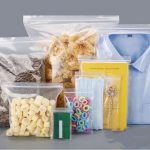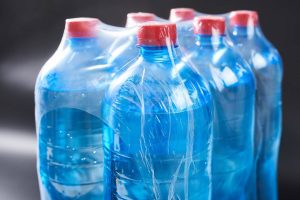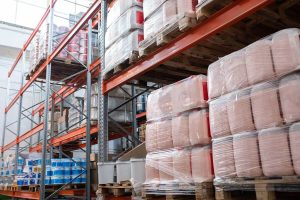
Marine pollution has always been a pressing issue. Every day, tons of waste, including ocean-bound plastics, end up in the ocean. There are many types of ocean-bound plastics that can cause marine pollution and create issues for the overall environment.
It is important to analyse this pressing issue in detail because ocean-bound plastics like plastic bags, stretch wraps and more affect even the most remote locations on Earth.
The purpose of this article is to thoroughly discuss how ocean-bound plastics affect the environment.
Let’s start with some basics.
What is Ocean-bound Plastic?
Ocean-bound plastic is defined as plastic waste of different sizes, including microplastics and macroplastics, that pollute the ocean 50 km from the shore areas. In these areas, typically, no waste management companies are there to manage the waste.
As a result, ocean-bound plastics have a very high chance of polluting the entire marine ecosystem and entering the human food chain. They end up adversely affecting the health
of both aquatic life and humans.
A wide range of other pollutants also enter the ocean, but it is important to pay special attention to plastics because they have very high resilience and longevity. It is possible for ocean-based plastics to withstand extreme forces of degradation.
These longevity and durability properties in plastics are preferred when making plastic bags and products, but if they enter the marine ecosystem, they can become a threat to the environment.
Sources of Ocean-based Plastics
The sources and specific composition of ocean-based plastics, such as plastic bags and stretch films, can greatly vary from region to region.
Statistics show that about 40% of the world’s population lives within 100 km of the coast. The densely populated coastal areas contribute a significant amount of plastic waste to the marine ecosystem.
Another important statistic that proves the pressing issue of ocean-based plastics is that the number of plastics ending up as waste is almost equal to the amount of plastics produced.
Types of Plastics Polluting the Oceans
Many different types of plastics and plastic products are polluting the oceans. Nowadays, a lot of companies are paying special attention to moving away from single-use plastic and implementing recycling practices to minimise the pollution caused by ocean-based plastics.
Such practices are important to enhance sustainability.
Four major types of recycling being used to minimise the impact of ocean-based plastics on the environment are:
- Primary recycling involves closed-loop recycling to process plastics into products with similar attributes.
- Secondary recycling involves recycling plastics into products with downgraded attributes.
- Tertiary recycling involves recovering chemical components of plastics.
- Quaternary recycling involves the recovery of energy through vaporisation.
Thermoplastics are typically recycled through primary recycling measures. These types of plastics are present in many different products. Food packaging, such as stretch wraps, is mainly made from thermoplastics.
Efforts to Promote Sustainability
Many organisations, agencies, and governments worldwide are working around the clock to prevent different types of pollution, including marine pollution caused by ocean-bound plastics.
However, there is still a lot of progress to be made because there must be a significant shift in the product’s life cycle to prevent ocean-bound plastics.
Moreover, a significant change is needed in the attitude of most consumers and the way we use plastic products.
With the rise of proper recycling methods and higher awareness about the impact of plastics on the environment, more people are playing their role in promoting sustainability.
There is still great room to do more to reduce the impact of plastics on the environment. More work is required to get rid of the existing pollutants and prevent future pollution as well.
Final Takeaways
The use of plastics has no doubt transformed our lives significantly. However, single-use plastics typically end up in the ocean and cause great harm to the environment.
Thong Guan Industries Bhd, one of the largest stretch film manufacturers in Malaysia, is ramping up its effort on recycling post-consumer waste (PIW) and post-consumer recycled (PCR) to reduce waste-to-landfill.
Along with the advancement in recycling, all of us must change our individual habits to focus on using plastic responsibly and get them recycled as much as possible.
If you are interested to recycle your stretch films, check out our RE:DO and RE:USE programmes or contact us at info@thongguan.com





